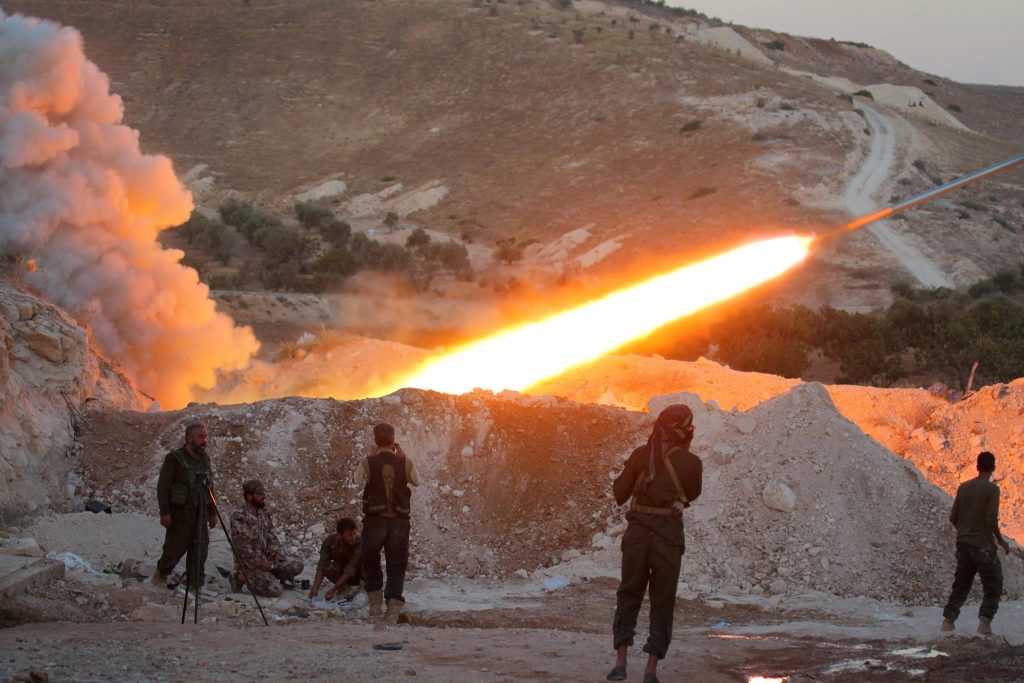
At least 11 people have been killed in escalating clashes between Russian forces and pro-Iranian militias in the city of Aleppo, amid strained relations between the two Assad allies, news agency Syria Call has reported according to middleeastmonitor.com.
A Russian military source acknowledged the death of 11 people, including two children and three women, whilst 11 others are believed to have been injured in the violence. Clashes reportedly broke out near a vegetable market in Khaldiya, which quickly escalated to the use of heavy weaponry, with some ground-to-air missiles fired on nearby areas within the city, resulting in the civilian casualties.
Although both Russia and Iran have supported the Syrian regime of President Bashar Al-Assad, tensions have been rising in government-controlled territories over administrative issues, with both forces competing for public influence.
The management of checkpoints has also become contentious, with Russian troops and Iranian militants charging royalties for crossings, by which they can generate huge profits on a daily basis, according to the Syrian Observatory for Human Rights.
In the aftermath of Israeli bombing on Iranian targets near Aleppo, Tehran-backed groups have accused the Russians of coordinating with Tel Aviv on the strikes, hoping to also benefit from a weakening Iranian presence. Last month, Israeli Prime Minister Benjamin Netanyahu affirmed that Russian President Vladimir Putin also wanted all Iranian forces to withdraw from Syria.
Relations have also been strained over encounters with Turkey; Damascus responded to Turkish shelling of the Kurdish-controlled area of Tal Rifaat yesterday, with several shells landing close to Russian military bases operating in the north of Aleppo.
With the violence winding down in the country after eight years of war, both Russia and Iran also seek to benefit from the financial opportunities the proposed reconstruction could afford.
On Sunday Iran announced it has resumed its plan for a railway line from Tehran through neighbouring Iraq to Damascus. The Syrian government also announced earlier this month its intention to lease the port of Latakia to Iran from October, in response to an official Iranian request. In January the two countries signed a deal to ease bank transfers to make finance for investment available faster.
However Russia has also attempted to secure its influence, last year signing an agreement which granted Moscow exclusive rights to produce oil and gas in Syria. Although the damage to the country’s petroleum infrastructure is significant, Russia has committed to rebuild power plants, pump gas and construct mills over the next 25 years.
Iran has relied heavily on the religious ties between Damascus and Tehran to prop up its relationship; its Shia militias have been accused of repopulating Syrian cities based on sectarian lines. However, there are suggestions that Russia also has a say in investment deals that Damascus has signed or promised to secure with Tehran, with commentators pointing out that many proposed agreements have not yet been implemented.


